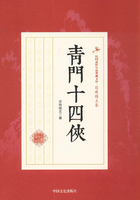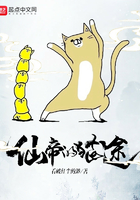If we remove those strata of the law of villainage which owe their origin to the action of the feudal system and to the action of the State, which rises on the ruins of the feudal system, we come upon remnants of the pre-feudal condition. They are by no means few or unimportant, and it is rather a wonder that so much should be preserved notwithstanding the systematic work of conquest, feudalism, and State. When I speak of pre-feudal condition I do not mean to say, of course, that feudalism had not been in the course of formation before the Norman Conquest. Imerely wish to oppose a social order grounded on feudalism to a social order which was only preparing for it and developing on a different basis. The Conquest brought together the free and unfree. Our survivals of the state of things before the Conquest group themselves naturally in one direction, they are manifestations of the free element which went into the constitution of villainage. It is not strange that it should be so, because the servile element predominated in those parts of the law which had got the upper hand and the official recognition. A trait which goes further than the accepted law in the direction of slavery is the difficulties which are put by Glanville in the way of manumission. His statement practically amounts to a denial of the possibility of manumission, and such a denial we cannot accept. His way of treating the question may possibly be explained by old notions as to the inability of a master to put a slave by a mere act of his will on the same level with free men.
However this may be, our survivals arrange themselves with this single possible exception in the direction of freedom.
Perhaps such facts as the villain's capacity to take legal action against third persons, and his position in the criminal and police law, ought not to be called survivals. They are certain sides of the subject. They are indissolubly allied to such features of the civil law as the occasional recognition of villainage as a protected tenure, and the villain's admitted standing against the lord when the lord had bound himself by covenant. In the light of these facts villainage assumes an entirely different aspect from that which legal theory tries to give it. Procedural disability comes to the fore instead of personal debasement. A villain is to a great extent in the power of his lord, not because he is his chattel, but because the courts refuse him an action against the lord. He may have rights recognised by morality and by custom, but he has no means to enforce them; and he has no means to enforce them because feudalism disables the State and prevents it from interfering.
The political root of the whole growth becomes apparent, and it is quite clear, on the one hand, that liberation will depend to a great extent on the strengthening of the State; and, on the other hand, that one must look for the origins of enslavement to the political conditions before and after the Conquest.
One undoubtedly encounters difficulties in tracing and grouping facts with regard to those elements of freedom which appear in the law of villainage. Sometimes it may not be easy to ascertain whether a particular trait must be connected with legal progress making towards modern times, or with the remnants of archaic institutions. As a matter of fact, however, it will be found that, save in very few cases, we possess indications to show us which way we ought to look.
Another difficulty arises from the fact that the law of this period was fashioned by kings of French origin and lawyers of Norman training. What share is to be assigned to their formal influence? and what share comes from that old stock of ideas and facts which they could not or would not destroy? We may hesitate as to details in this respect. It is possible that the famous paragraph of the so-called Laws of William the Conqueror, prescribing in general terms that peasants ought not to be taken from the land or subjected to exactions,(3*) is an insertion of the Norman period, although the great majority of these Laws are Saxon gleanings. It is likely that the notion of wainage was worked out under the influence of Norman ideas; the name seems to show it, and perhaps yet more the fact that the plough was specially privileged in the duchy. It is to be assumed that the king, not because he was a Norman but because he was a king, was interested in the welfare of subjects on whose back the whole structure of his realm was resting. But the influence of the strangers went broadly against the peasantry, and it has been repeatedly shown that Norman lawyers were prompted by anything but a mild spirit towards them. The Dialogus de Scaccario is very instructive on this point, because it was written by a royal officer who was likely to be more impartial than the feudatories or any one who wrote in their interest would be, and yet it makes out that villains are mere chattels of their lord, and treats them throughout with the greatest contempt. And so, speaking generally, it is to the times before the Conquest that the stock of liberty and legal independence inherent in villainage must be traced, even if we draw inferences merely on the strength of the material found on this side of the Conquest. And when we come to Saxon evidence, we shall see how intimately the condition of the ceorl connects itself with the state of the villain along the main lines and in detail.
The case of ancient demesne is especially interesting in this light. It presents, as it were, an earlier and less perfect crystallisation of society on a feudal basis than the manorial system of Common Law. It steps in between the Saxon soc and tun on the one hand, and the manor on the other. It owes to the king's privilege its existence as an exception. The procedure of its court is organised entirely on the old pattern and quite out of keeping with feudal ideas, as will be shown by-and-by.















